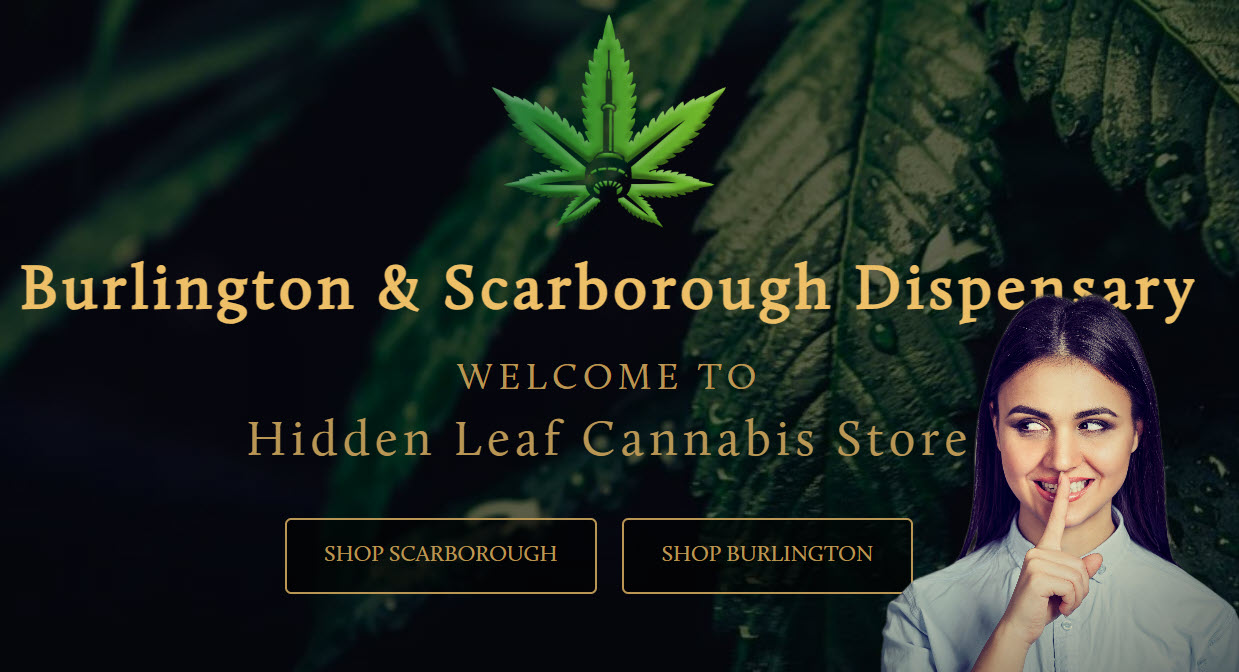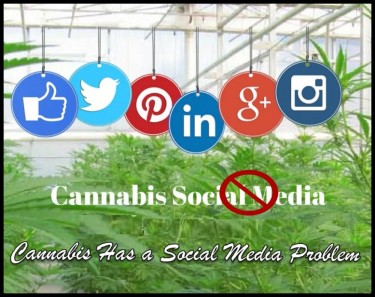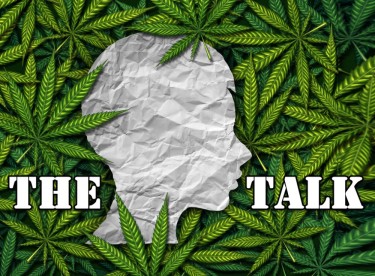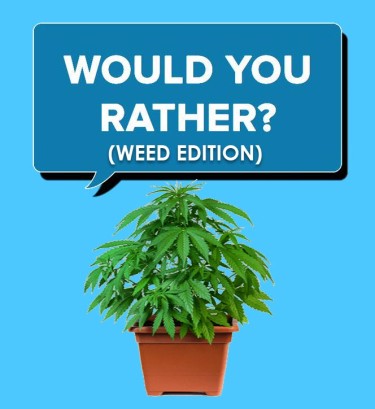Cannabis News
How is the US Government Studying the Health Benefits of Cannabis? Your Instagram and Facebook Posts, No Joke!
Published
3 months agoon
By
admin

New FDA Report Shows Marijuana Rescheduling May Come Down to Your Social Media Posts about Weed!
Marijuana Moment reported a piece on FDA research that you thought was from The Onion.
The Food and Drug Administration (FDA) is drawing attention to its scientific examination of marijuana, which prompted the agency to propose rescheduling. This involved a thorough analysis of research findings, as well as the examination of numerous social media posts to understand how consumers perceive the therapeutic effects of cannabis.
Wait, what?
Unveiling the FDA’s Cannabis Assessment Journey
The Center for Drug Evaluation and Research (CDER) of the FDA published its Drug Safety Priorities report for the fiscal year 2023 on Thursday. The study featured several projects that demonstrate the scope and flexibility of the Center’s and FDA’s drug safety activities. An important project that was started in 2022 was the study of cannabis, which was ordered by President Joe Biden.
CDER thoroughly examined a wide range of data sources to do an Eight-factor analysis (8FA), a scientific and medical evaluation. Based on the findings of this investigation, the FDA advised the Drug Enforcement Administration (DEA) to reclassify marijuana from Schedule I to Schedule III under the Controlled Substances Act.
To bolster the 8FA that was submitted to the DEA, the CDER Office of Surveillance and Epidemiology (OSE) reviewed sources of epidemiological and pharmacovigilance data as part of the agency’s extensive assessment of marijuana.
Following the FDA review, the U.S. Department of Health and Human Services (HHS) submitted a letter containing extensive research materials to the DEA, recommending the reclassification to Schedule III. The DEA is currently conducting its review before making a final decision. Despite rumors suggesting an imminent announcement two weeks ago, a Biden administration official dismissed these claims.
The FDA’s efforts to reach a scheduling decision also involved a team of social scientists who spent six months conducting a detailed qualitative analysis of online and social media discussions surrounding marijuana. This study involved manually analyzing hundreds of posts from publicly available platforms to gather user perspectives on marijuana, including its therapeutic efficacy for conditions such as anorexia, anxiety, nausea, and pain, as well as non-medical uses, benefits, negative effects, and experiences with access.
Additionally, the FDA report highlighted the completion of an assessment regarding the capabilities and utility of various epidemiological, pharmacovigilance, and drug utilization data sources for monitoring the safety of unapproved cannabis-derived products.
Delays and Congressional Pressure: The Quest for Clarity
It has been over six months since the FDA recommended to the DEA that marijuana be rescheduled, but it is unclear when a final decision will be made. The Congressional Cannabis Caucus’ founder, Representative Earl Blumenauer (D-OR), has been pressing the DEA to be more open about its continuing assessment process throughout this time. He specifically asked for information on the agency’s projected completion date for the assessment as well as if it would take into account the legalization of cannabis in several states.
A prior letter from Blumenauer and thirty nonpartisan congressmen caused the DEA to declare its “final authority” over the rescheduling decision, which is when Blumenauer made his request.
On the other hand, in a letter to the DEA, a Republican congressman who is well-known for his adamant opposition to marijuana reform attacked the FDA’s suggestion to reschedule cannabis. He called into question the scientific soundness of the FDA’s ruling and suggested the DEA ignore it in the process of reaching its ultimate conclusion.
Senators Elizabeth Warren (D-MA), John Fetterman (D-PA), and Senate Majority Leader Chuck Schumer (D-NY), along with other proponents of marijuana reform, wrote DEA Administrator Anne Milgram a separate letter in which they urged the agency to not only reschedule cannabis but also remove it completely from the Controlled Substances Act (CSA).
Meanwhile, Xavier Becerra, the secretary of health and human services, stated last month that his agency has communicated to the DEA its stance on the rescheduling of marijuana and continues to provide further materials to aid in the decision-making process.
Before the release of a significant cache of documents by the HHS regarding its recommendation on cannabis, a coalition of 12 Democratic state attorneys general urged the DEA to proceed with the federal rescheduling of marijuana, citing it as a critical measure for public safety.
Diverse Stakeholder Perspectives and Political Implications
A group of 29 former U.S. attorneys wrote a letter to the Biden administration in December requesting that cannabis remain listed as Schedule I.
In a coordinated letter to President Biden, the governors of six states—Colorado, Illinois, New York, New Jersey, Maryland, and Louisiana—pleaded for the rescheduling of marijuana by the end of the previous year.
The federal health agency’s suggestion to reschedule marijuana was opposed by a coalition of six former DEA chiefs and five former White House drug czars, who wrote a letter to the attorney general and the current DEA administrator. They also made assertions regarding the relationship between drug schedules and criminal penalties, potentially overstating the impact of incremental reform. Notably, signatories included heads of the DEA and the Office of National Drug Control Policy from various administrations, representing both major political parties.
In a separate initiative, a group of 14 Republican congressional lawmakers urged the DEA to reject the federal health agency’s recommendation and maintain marijuana in the CSA’s most restrictive category.
Recent polling suggests that approximately one-third of marijuana consumers would revert to the illicit market if cannabis were rescheduled and only accessible as an FDA-approved prescription drug.
Moreover, a recent survey indicated that President Biden could experience substantial political gains if marijuana were rescheduled under his administration’s directive, though it’s important to note that Biden does not directly control the final decision.
President Biden has frequently highlighted his 2022 scheduling directive and the mass pardons he issued for individuals convicted of federal marijuana possession offenses. In December, he furthered this action with an expanded pardon proclamation. The Justice Department has already commenced issuing certifications for individuals who applied during the second round.
Additionally, Vice President Kamala Harris’s office has been in contact with individuals who received a cannabis pardon, ensuring a smooth process for Justice Department certification and engaging in broader discussions about cannabis policy reform, as reported by a recipient of the pardon who was contacted.
Bottom Line
In navigating the multifaceted landscape of marijuana policy reform, the FDA’s exhaustive examination of cannabis, supplemented by insights from social media analysis, illuminates the intricate dynamics at play. Despite the agency’s recommendation for rescheduling, political pressures from congressional figures and stakeholders present hurdles towards a definitive decision. The divergent views expressed by former U.S. attorneys, governors, and DEA officials underscore the contentious nature of the issue. Meanwhile, public sentiment and potential market shifts add further complexity, with implications for President Biden’s administration and broader cannabis policy reform. Ultimately, the FDA’s thorough evaluation serves as a focal point in a complex discourse, highlighting the intricacies of balancing scientific evidence, political interests, and societal perceptions in shaping marijuana policy.
CANNABIS AND SOCIAL MEDIA, IT’S COMPLICATED, READ ON…
You may like
-


Is Your Kid Smoking or Vaping Weed?
-


Press Release: PsychedelicNewsWire Named Official Media Sponsor of the 4th Annual Psychedelic Therapeutics and Drug Development Conference
-


Memorial Day’s best weed, prerolls, carts, and more 2024
-


Naps Done Right Can Make a Huge Difference
-


Michigan is selling more cannabis, but retailers are taking in less money
-


Can Marijuana Give A Break From All The Drama


Marijuana for recreational and medicinal purposes is becoming more widely available and simpler to purchase every day. Furthermore, opinions about the drug’s possible risks have changed as a result of recent legislative modifications, especially among young teenagers.
While proper use of marijuana can offer health benefits for specific conditions, inappropriate use can lead to a variety of problems. It can severely impact health, situational judgment, memory, coordination, and more.
Given that marijuana has rapidly become a much more commonly used drug among young people, it is crucial to recognize the main signs of marijuana use in teens to ensure their safety and well-being.
Statistics on Child Marijuana Use
Though the stats may surprise you, marijuana is the most often used narcotic among teenagers. Among children between the ages of 12 and 17, the National Center for Drug Abuse reports that:
– Nearly 44% have tried marijuana in their lifetime, up from 37% in 2019.
– 35% used marijuana in the past year.
– Almost 7% of 12th graders use marijuana daily.
Regretfully, eighth, ninth, and tenth kids are exposed to an alarmingly high level of marijuana. Early usage is problematic since those who start using earlier have a greater likelihood of heavier use later in life.
How THC Impacts the Brain
The active element in cannabis is tetrahydrocannabinol (THC), which produces the “high” associated with marijuana. THC can be ingested by smoking cannabis flowers, vaping concentrated forms, or eating THC-infused foods. THC impacts the brain by interfering with processes that are typically controlled by naturally existing endocannabinoids.
The brain grows from birth to the mid-twenties, and consuming marijuana at a young age can interrupt this important development. Early marijuana usage appears to influence brain development, according to recent research.
The effects of cannabis on the brain are extensive:
– Executive Functioning: Skills necessary for daily life, such as focus, memory, problem-solving, planning, reasoning, and emotional control, are compromised.
– Working Memory: The ability to remember and later recall or use information is reduced.
– Lingering Effects: The impact of cannabis use can last well beyond the period of intoxication. Even if someone smokes on a weekend, the effects can persist into the following week. Regular use leads to a persistent decline in executive functioning, working memory, and other cognitive areas.
Cannabis use interferes with the brain’s circuits, and it remains uncertain whether the brain can fully recover if marijuana use is discontinued.
Signs Your Child is Using Cannabis
Recognizing if your child is using marijuana can involve noticing various signs, including:
– Hair or clothes with a pungent marijuana smell
– Red or bloodshot eyes
– Delayed reaction times
– Mood swings
– Laziness and tiredness
– Presence of marijuana-related paraphernalia
– Paranoia or anxiousness
– Increased hunger or “munchies”
Visible Signs of Marijuana Use
Shortly after usage, marijuana’s effects can be perceived both visually and aromatically. It is very suggestive of marijuana usage if your adolescent returns home with red or bloodshot eyes. Physical and mental delays in response times and problems with muscular coordination are further symptoms.
Cannabis has a unique fragrance that is another warning clue; it is frequently characterized as having a pungent, musky smell like that of a skunk. On your teen’s clothes, this odor might cling rather readily.
Changes in Emotional State
The body and mind might react differently to different strains or varieties of marijuana. Teenage marijuana usage is frequently indicated by mood swings, lethargy, and general exhaustion in their day-to-day demeanor. Depending on how their body responds, they might also seem nervous and exhibit an elevated heart rate.
Your youngster may struggle to focus at job, school, or home as a result of these changes, which frequently results in subpar performance and grades. This decrease might be a clear indication that marijuana use has turned into an addiction.
Educating Your Child about Marijuana
Regardless of whether you suspect your child is using cannabis, it’s important to discuss it. Parents and caregivers should talk about all types of dangerous substances, including nicotine, alcohol, and cannabis, with children as early as elementary school.
It’s important to be proactive and talk to your youngster about the risks associated with marijuana. These talks may serve to deter marijuana usage or at the very least postpone the initial experience until the mid-20s, when the brain is more completely matured.
As teenagers become older, their need for independence grows, which makes it harder for parents to control their actions. Still, parents need to persevere. It is significantly more dangerous to consume cannabis than it is uncomfortable to have a difficult talk.
Addressing Marijuana Use and Seeking Help
For teenagers’ wellbeing, it is essential to identify and treat marijuana usage. It’s crucial to handle the matter with compassion and support if you think your child may be consuming marijuana. Discussing its usage, the rationale behind it, and any possible hazards should come first in an honest and nonjudgmental discussion. Give your child access to a secure environment where they may talk about their thoughts and experiences. You can gain insight into their viewpoint and advice on how to make better decisions by having this discussion.
If using marijuana has become troublesome, you might think about getting professional assistance. Resources like therapists, counselors, and specialty treatment programs can provide your kid with the help they need. These specialists are qualified to deal with underlying problems including stress, peer pressure, or mental health disorders that may be causing drug use. Early intervention can stop the usage from getting worse and support your kid in creating healthy coping mechanisms. Getting a medical expert involved can also offer a methodical way to handle the matter and guarantee that your adolescent gets the treatment they need.
It is critical to be involved and supportive throughout the process. Encourage your kid to participate in activities that support their well-being and offer positive reinforcement for good habits. Stay educated about the services available in your area, and consider joining support groups for parents struggling with similar challenges. You can assist your child in navigating this difficult period and promote a healthy, drug-free future by keeping open communication and obtaining expert support as required.
Bottom Line
Parents need to be vigilant about the signs of marijuana use in their children, given its prevalence among teenagers and its potential impact on their health and development. Early detection, open communication, and seeking professional help if needed are key strategies for addressing marijuana use in adolescents. By providing support, education, and access to resources, parents can help guide their children towards healthier choices and a drug-free future.
HOW TO HAVE “THE TALK” WITH YOUR KIDS, READ ON..
Cannabis News
How Did Hidden Leaf Cannabis Become the Leader of the Ontario Marijuana Market?
Published
3 days agoon
May 17, 2024By
admin

Cannabis.net sat down with Ontario’s hottest cannabis store to find out some of their “secret sauce” that made them the best dispensary in Ontario, Canada.
Q: How did you come up with the name Hidden Leaf for Ontario’s premier cannabis dispensaries?
A: Growing up, I was always a big fan of the anime show Naruto, where the main character grew up in a village called “Hidden Leaf Village.” Naruto’s backstory really resonated with me, inspiring me to name the company Hidden Leaf. As Ontario’s premier Burlington and Scarborough Dispensary, we strive to embody the spirit of community and resilience found in Naruto’s tale.
Q: What makes Hidden Leaf the best dispensary in Scarborough or Burlington?
A: At Hidden Leaf, customer service sets us apart. Unlike many other dispensaries that curate their menu based on profitability, our customers drive our selection. We actively encourage our patrons from both our cannabis store Scarborough and cannabis store Burlington to send in their product recommendations, which we try our best to stock. Plus, we offer the most competitive pricing, making cannabis affordable for everyone. Our commitment to these principles makes us stand out in the Scarborough dispensary and Burlington dispensary markets.
Q: How did you first get into the Canadian cannabis market? What made you take the leap of faith?
A: From a young age, I’ve always wanted to own a business and had a passion for the cannabis industry, learning to grow plants and understanding the different types of concentrates. Taking the risk to enter the business felt right as it was a great way to expand my knowledge and participate actively in the burgeoning cannabis market in cities like Scarborough and Burlington.
Q: Canada was the first G7 country to legalize weed, what advice would you look back and give your past self? What do you wish you knew then that you know now?
A: Looking back, I wish I had learned more about the cannabis business earlier and entered the industry as soon as it was legalized. Now, understanding the different avenues to enter the cannabis industry, I would definitely consider owning my own grow facility among other ventures. This knowledge would have been invaluable from the start, especially in dynamic markets like those of our Cannabis Store Burlington and other locations.
Q: What are Hidden Leaf’s best strains, or what do customers come back for over and over?
A: Hidden Leaf carries a wide variety of brands and strains to cater to every customer’s needs. From budget-friendly options for those looking to save a few bucks to premium quality strains for the real cannabis connoisseurs, our selection is vast. Customers frequently return for our consistent quality and the breadth of our offerings, including popular cannabis flowers at both our Scarborough and Burlington locations.
Q: What has been the biggest challenges in setting up a cannabis business in Canada?
A: The biggest challenge has been finding the right location. Despite legalization, there’s still a stigma around cannabis with many landlords, making it hard to lease properties for cannabis businesses. Additionally, the market is quite saturated with many retailers opening up, so it’s crucial to choose strategic locations for our dispensaries to avoid excessive competition, particularly in areas served by our Scarborough dispensary and cannabis store Burlington.
Q: What do you think about the future of cannabis beverages?
A: The future of cannabis beverages and edibles is very promising. Many people who are new to cannabis are not fans of smoking, so THC beverages and edibles offer a fantastic alternative. These products are expected to attract a new wave of consumers looking to explore cannabis in a more familiar and accessible form.
Q: What is the best way for people to find out more about us or visit us? Website? Social media?
A: The best way for customers to find out more about Hidden Leaf is through our website. It’s the go-to place to find the closest location, whether that’s our Scarborough dispensary or cannabis store Burlington, and to explore our menu and pricing. Our website is a comprehensive resource for anyone interested in our products and services.
Q: If someone is trying to decide which dispensary to go to in Ontario, why should they go to Hidden Leaf?
A: At Hidden Leaf, it’s all about customer service and pricing. We don’t believe in upselling; instead, our goal is to find the best product within your budget. Our customers help shape our menus with their recommendations, which we order in every week. With very competitive pricing, we believe cannabis should be affordable for everyone, making our Burlington and Scarborough Dispensary the go-to choice for quality cannabis products and genuine customer care.
Cannabis News
Are You Bored So You Smoke Weed or Do You Smoke Marijuana and Get Bored?
Published
3 days agoon
May 17, 2024By
admin

Cannabis and Boredom
Boredom is a universal human experience characterized by a lack of interest, motivation, or engagement in one’s current activities. It is a state of mind that can leave individuals feeling restless, apathetic, and dissatisfied.
But why do people get bored?
Research suggests that boredom serves a vital function within the life of the individual, acting as a signal that one’s current situation is unfulfilling and that change is needed.
Boredom can be a catalyst for personal growth and development. When faced with monotony, the mind yearns for stimulation and seeks out new experiences.
This innate drive pushes individuals to explore new hobbies, learn new skills, and challenge themselves in ways that promote self-improvement. In this sense, boredom can be seen as a motivational force that encourages people to break free from stagnation and pursue meaningful goals.
However, in today’s fast-paced, instant-gratification society, many individuals struggle with the discomfort of boredom and seek quick fixes to alleviate its symptoms.
A recent Reddit post posed the question, “Do you use cannabis to escape boredom, or does cannabis make you content with being bored?” This query highlights a common trend among cannabis users who turn to the substance as a means of coping with idle moments.
In this article, we will explore the concept of “escaping boredom” through cannabis use and examine the potential pitfalls of relying on the substance as a sole means of entertainment.
We will also delve into the function of boredom within the life of the individual and discuss how cannabis, when used mindfully, can be a tool for enhancing focus and productivity rather than a mere distraction from tedium.
Boredom, often perceived as a negative emotional state, has been the subject of numerous studies that highlight its potential benefits for personal growth. A study conducted by Mann and Cadman (2014) found that engaging in boring tasks can stimulate creativity and problem-solving abilities. The researchers suggest that when the mind is not occupied with external stimuli, it tends to wander and generate novel ideas.
Similarly, Gasper and Middlewood (2014) discovered that boredom can lead to increased motivation and goal-directed behavior, as individuals seek to alleviate the unpleasant state by pursuing meaningful activities.
However, boredom can become toxic when it is chronic or excessive. Prolonged periods of boredom have been linked to negative outcomes such as depression, anxiety, and substance abuse (Eastwood et al., 2012).
When individuals lack the skills or resources to cope with boredom in a constructive manner, they may turn to maladaptive behaviors as a means of escape. This can create a vicious cycle where the temporary relief provided by these behaviors reinforces their continued use, leading to further disengagement from life’s challenges and opportunities.
So, what’s the secret to never being bored? The answer lies in cultivating a curious and engaged mindset. Individuals who approach life with a sense of wonder and a desire to learn are less likely to experience boredom, as they find joy and meaning in even the most mundane tasks.
By setting goals, pursuing hobbies, and seeking out new experiences, one can maintain a sense of purpose and fulfillment that keeps boredom at bay.
As a regular cannabis smoker myself, I can attest to the fact that it is possible to lead a stimulating and engaging life while still enjoying the benefits of the plant. In the next segment, I will share my personal secret for using cannabis as a tool for enhancing focus and creativity rather than as a means of escaping boredom.
By mindfully integrating cannabis into a balanced and purposeful lifestyle, individuals can harness its potential for personal growth and avoid falling into the trap of chronic boredom.
As a seasoned cannabis enthusiast, I’ve come to understand that the key to overcoming boredom lies not in escaping it, but in embracing it.
The first step is to recognize that the anxiety associated with boredom is not inherently negative. Instead, it is an opportunity for self-reflection and growth. By becoming comfortable with boredom, you open yourself up to new possibilities and experiences.
One of the most common mistakes that stoners make is relying solely on cannabis for entertainment. While cannabis can certainly enhance many activities, it is essential to find something to pursue that isn’t related to smoking.
This requires honest introspection and a willingness to explore your interests and passions. Take the time to reflect on what truly excites and motivates you, and don’t be afraid to step outside your comfort zone.
When pursuing new activities, it’s crucial to focus on the process rather than the outcome. In our fast-paced, instant-gratification society, we often fixate on the end result and lose sight of the joy found in the journey itself.
By falling in love with the process of doing, you can find fulfillment and satisfaction in the present moment, regardless of the ultimate outcome. The goal should serve as a guiding light, but the real magic happens in the day-to-day efforts you put forth.
Once you discover an activity that genuinely captivates you, cannabis can become a tool for enhancing the experience rather than a means of escaping boredom. When you’re engaged in something you love, smoking cannabis can heighten your focus, creativity, and enjoyment without hindering your productivity.
If you find yourself frequently bored and turning to cannabis as a crutch, take a step back and ask yourself, “What would I really like to be doing right now?” Allow your mind to explore various possibilities and jot down any ideas that come to mind.
From this list, identify an activity that isn’t passive or cannabis-related, and make a conscious effort to dedicate your “bored” moments to pursuing this interest.
As you begin to focus on this newfound passion, you’ll notice that cannabis no longer serves as an escape from boredom but rather as a complement to your engaging pursuits. You’ll find yourself sparking a joint and diving into your work with renewed enthusiasm and focus.
Remember, the key to beating boredom as a stoner lies in embracing it as an opportunity for self-discovery and personal growth. By finding something you truly love and immersing yourself in the process, you can transform those once-dreaded moments of boredom into a catalyst for a more fulfilling and satisfying life.
As we conclude this exploration of cannabis and boredom, it’s essential to acknowledge that the temptation to use cannabis as an escape from boredom is understandable, particularly for young people who are still discovering their identity and purpose in life.
In a world that moves at breakneck speed, it’s easy to fall into the trap of seeking instant gratification and quick fixes for even the most mundane tasks.
However, it’s crucial to recognize that the fast-paced nature of our society has transformed our minds into dopamine-addicted entities, constantly craving the next hit of excitement or stimulation. This mindset can lead to a vicious cycle of unfulfillment and dissatisfaction, as we become increasingly reliant on external sources of pleasure to combat boredom.
The key to breaking free from this cycle lies in embracing difficulty and challenging ourselves to grow. By engaging in activities that push us beyond our comfort zones and require us to learn new skills, we can cultivate a sense of achievement and fulfillment that goes beyond fleeting moments of pleasure.
This process of overcoming obstacles and mastering new abilities reinforces our motivation to continue pursuing personal growth and development.
Ultimately, boredom is a weapon that can be wielded for good or ill, depending on how we choose to frame it. Rather than allowing boredom to dominate our lives or turning to cannabis as a means of escape, we must learn to harness its power and mold it into a tool for positive change. By embracing boredom as an opportunity for self-reflection, exploration, and growth, we can transform those moments of restlessness into catalysts for personal transformation.
So, to all the cannabis enthusiasts out there, I encourage you to view boredom not as an enemy to be vanquished but as an ally in your quest for a more fulfilling and purposeful life. Don’t let cannabis become a crutch that holds you back from reaching your full potential. Instead, use it as a tool to enhance your experiences and complement your passions.
Armed with this newfound perspective, go forth into the world with confidence and determination. Embrace the challenges that come your way, and use them as stepping stones to greatness.
Let boredom be your guide, leading you towards a life filled with meaning, purpose, and endless possibilities. And when you do choose to indulge in cannabis, do so not as an escape from reality but as a celebration of the incredible journey you’re on.
In the end, the sticky bottom line is this: Life is too short to be bored. So light up that joint, kick some ass, and take some names along the way. The world is yours for the taking, and with the right mindset, there’s nothing you can’t achieve.
STONED AND BORED, READ ON…
WOULD YOU RATHER… THE GAME TO PLAY WHEN YOU ARE STONED AND BORED!

Is Your Kid Smoking or Vaping Weed?

Press Release: PsychedelicNewsWire Named Official Media Sponsor of the 4th Annual Psychedelic Therapeutics and Drug Development Conference

Memorial Day’s best weed, prerolls, carts, and more 2024

Naps Done Right Can Make a Huge Difference

Michigan is selling more cannabis, but retailers are taking in less money

Can Marijuana Give A Break From All The Drama

Consumer Spending Validates Marijuana Rescheduling

How Did Hidden Leaf Cannabis Become the Leader of the Ontario Marijuana Market?

Are You Bored So You Smoke Weed or Do You Smoke Marijuana and Get Bored?

Cannabis Rescheduling Takes The Next Steps

Distressed Cannabis Business Takeaways – Canna Law Blog™

United States: Alex Malyshev And Melinda Fellner Discuss The Intersection Of Tax And Cannabis In New Video Series – Part VI: Licensing (Video)

Drug Testing for Marijuana – The Joint Blog

What you Need to Know

Cannabis, alcohol firm SNDL loses CA$372.4 million in 2022

NCIA Write About Their Equity Scholarship Program

City Of Oakland Issues RFP For Employee Training Programs

It has been a wild news week – here’s how CBD and weed can help you relax

A new April 20 cannabis contest includes a $40,000 purse

UArizona launches online cannabis compliance online course
Trending
-

 Cannabis News1 year ago
Cannabis News1 year agoDistressed Cannabis Business Takeaways – Canna Law Blog™
-

 One-Hit Wonders1 year ago
One-Hit Wonders1 year agoUnited States: Alex Malyshev And Melinda Fellner Discuss The Intersection Of Tax And Cannabis In New Video Series – Part VI: Licensing (Video)
-

 drug testing5 months ago
drug testing5 months agoDrug Testing for Marijuana – The Joint Blog
-

 Cannabis 1011 year ago
Cannabis 1011 year agoWhat you Need to Know
-

 Marijuana Business Daily1 year ago
Marijuana Business Daily1 year agoCannabis, alcohol firm SNDL loses CA$372.4 million in 2022
-

 Education1 year ago
Education1 year agoNCIA Write About Their Equity Scholarship Program
-

 Education1 year ago
Education1 year agoCity Of Oakland Issues RFP For Employee Training Programs
-

 Cannabis1 year ago
Cannabis1 year agoIt has been a wild news week – here’s how CBD and weed can help you relax






